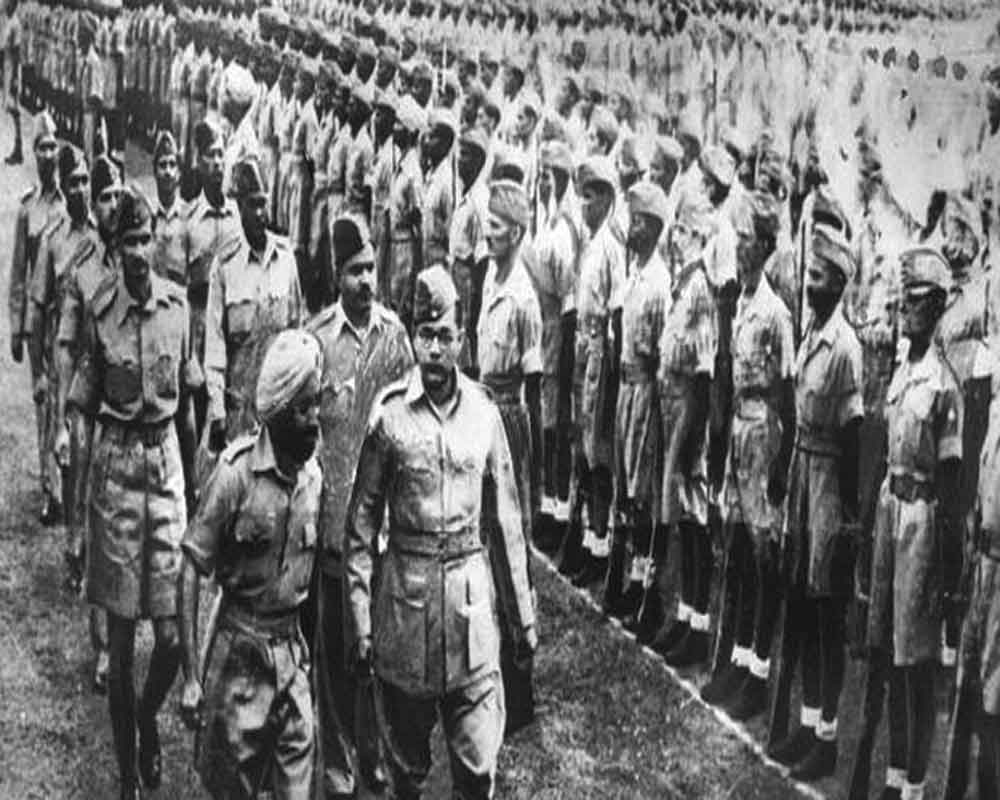As reportedly admitted by former British PM Attlee, the extent of Gandhi’s influence upon the decision to quit India was ‘minimal’
A conversation took place between former British Prime Minister Clement Attlee and the then acting Governor of West Bengal Justice PB Chakraborthy. In 1956, Clement Attlee had come to India and stayed as a guest of the then Governor. Remember, Attlee was the man who, as the British PM, had signed on the decision to grant Independence to India.
Chakraborthy then wrote a letter to the publisher of RC Majumdar’s book, A History of Bengal. In this letter, the Chief Justice wrote, “When I was acting Governor, Lord Attlee, who had given us Independence by withdrawing British rule from India, spent two days in the Governor’s palace during his tour of India. At that time, I had a prolonged discussion with him regarding the real factors that had led the British to quit India.†Chakraborthy adds, “My direct question to Attlee was that since Gandhi’s Quit India movement had tapered off quite some time ago and in 1947 no such new compelling situation had arisen that would necessitate a hasty British departure, why did they had to leave?... Attlee cited several reasons, the principal among them being the erosion of loyalty to the British crown among the Indian Army and Navy personnel as a result of Netaji’s military activities.â€
That’s not all. Chakraborthy adds, “Toward the end of our discussion, I asked Attlee what was the extent of Gandhi’s influence upon the British decision to quit India. Hearing this question, Attlee’s lips became twisted in a sarcastic smile as he slowly chewed out the word, m-i-n-i-m-a-l!’a
This startling conversation was first published by the Institute of Historical Review by author Ranjan Borra in 1982, in his piece on Netaji, the Indian National Army and the war of India’s liberation. To understand the significance of Attlee’s assertion, we have to go back in time to 1945. The Second World War had ended. The allied powers, led by Britain and the US, had won. The axis powers led by Hitler’s Germany had been vanquished. The victors wanted to impose justice on the defeated armies. In India, officers of Netaji Bose’s INA were put on trial for treason, torture and murder. This series of court martials came to be known as the Red Fort trials.
Indians serving in the British armed forces were inflamed by the Red Fort trials. In February 1946, almost 20,000 sailors of the Royal Indian Navy serving on 78 ships mutinied against the Empire. They went around Mumbai and Karachi with portraits of Netaji and forced the British to shout ‘Jai Hind’ and other INA slogans. The rebels brought down the Union Jack on their ships and refused to obey their British masters. This mutiny was followed by similar rebellions in the Royal Indian Air Force and also in the British Indian Army units in Jabalpur. The British were terrified. After the Second World War, 2.5 million Indian soldiers were being de-commissioned from the British Army.
Military intelligence reports in 1946 indicated that the Indian soldiers were inflamed and could not be relied upon to obey their British officers. There were only 40,000 British troops in India at the time. Most were eager to go home and in no mood to fight the 2.5 million battle-hardened Indian soldiers who were being demobilised. It is under these circumstances that the British decided to grant Independence to India.
The idea is not to in any way undermine the significant contribution of Mahatma Gandhi or Pt Nehru in awakening the masses to the value of freedom but to spark a debate about the real contribution of Netaji Subhas and the role played by him and the INA. School textbooks are dominated by the role played by the non-violent movement while the INA’s role is dismissed in a few cursory paragraphs. The time has come to revisit modern Indian history and acknowledge the immense contribution of Netaji in helping India win its freedom.
Bose was so popular as Congress president in 1938 that the members made him contest again in 1939. Gandhiji did not approve of the re-election and, in due course, squeezed the young leader out of the Party. In 1940, Netaji was put under home arrest in Calcutta, from where he decided to abscond to join Germany which was fighting World War II against Britain. The land route was difficult with several visas required on the way. After a hard struggle, Netaji reached Berlin in April 1941, three months since leaving Calcutta.
After the Japanese declared war on America and UK, Hitler suggested that Netaji could be more useful against the British. He therefore agreed to proceed across half the globe by submarine. He reached Singapore en route Tokyo by the middle of 1943, soon to take over an incipient INA founded by the patriot Rash Behari Ghosh. From a motley crowd of less than 10,000, Netaji within weeks built the army into a disciplined force of 50,000 soldiers by persuading British Indian POWs, that fought until the end of the war. Tragically, it took Bose’s life in an accidental air crash. India’s brightest lamp of patriotism was blown out.
(The writer is a well-known columnist, an author and a former member of the Rajya Sabha. The views expressed are personal.)


























